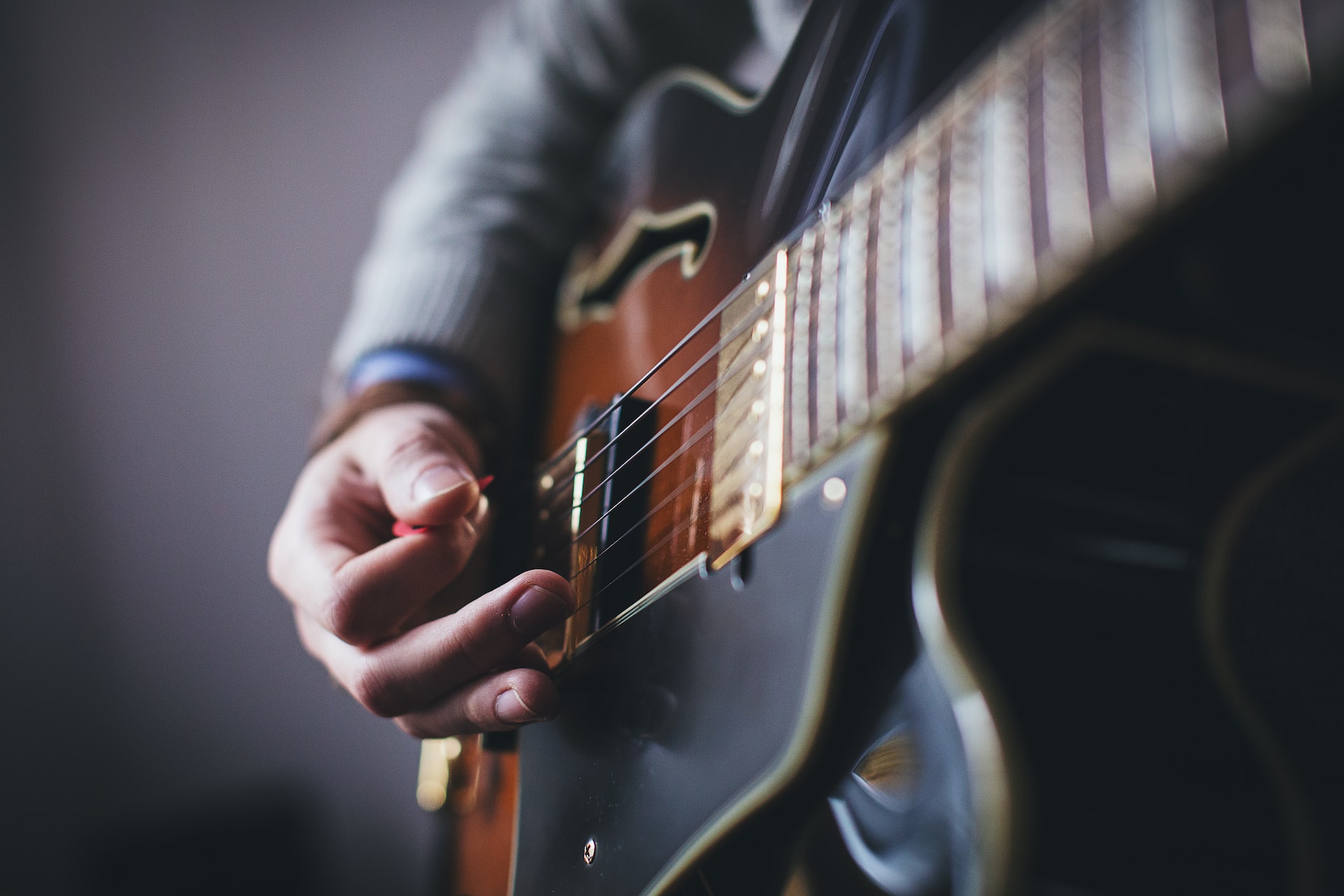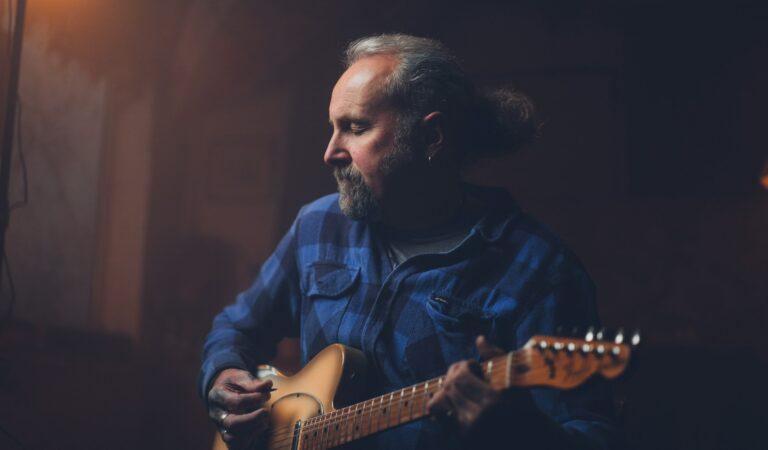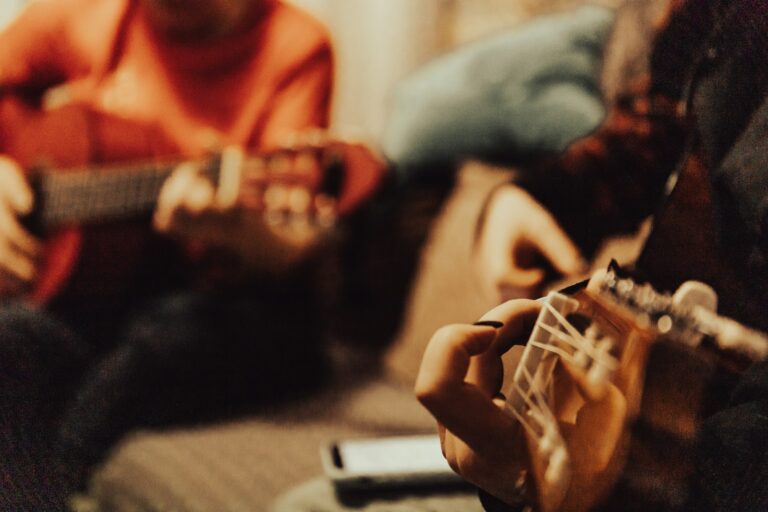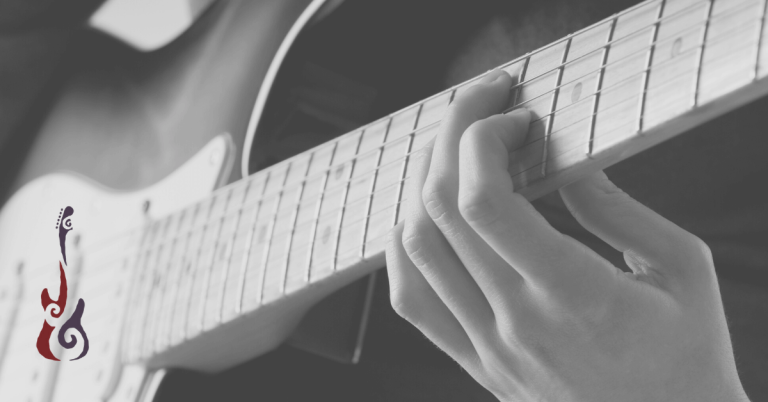Tips for Practicing Music
I came across a post made by a friend of mine this morning. It discussed how gifted musicians throughout history have gone about practicing music. We’re talking about the greats here, like Mozart, Beethoven, Chopin, Irving Berlin, Lennon & McCartney. These artists seemed to practice music simply by doing it and making it an extension of themselves.
This is at the forefront of how I view practicing music these days. To say you must practice something can be a little off-putting and even discouraging. It feels like work. And yes, it is work, but it doesn’t have to feel like it, or in our case, it doesn’t have to sound like it.
What Does it Mean to Practice?
Practicing music is the process of repeating a particular song or passage of music to become more familiar with it and improve one’s playing. It involves breaking down difficult passages and focusing on specific areas to master them.
It also involves setting aside regular practice time and using tools like metronomes and apps to help track progress. Practicing is essential for any musician who wants to take their playing to the next level.
What are the Benefits of Regular Practice?
Practicing music has many benefits, including improved technique, increased confidence, and better focus. It can also help build discipline, creativity, and empathy.
Practicing music can also be a great way to spend quality time with yourself or with loved ones. It can be a great source of stress relief, and it can also provide an opportunity to learn something new and explore different genres and styles.
Setting Practice Goals
Before deciding on the best way for you to practice your instrument, I recommend setting some goals. These goals can be as simple as learning a new piece of music, a new scale, a technique, or really anything.
Setting goals is key to getting the most out of your music practice. Breaking down difficult passages into smaller, achievable chunks, focusing on specific areas, and setting attainable goals are all important techniques for improving practice techniques. Having a clear idea of your goal from each practice session will help you stay focused and motivated.
But the trick isn’t to “master” the goal; it is to become a student of it, to exist with it. Without goals, you don’t know when or if you have achieved anything. They’re like checkpoints, and they always change with your progress. But it’s a simple way to get satisfaction by simply doing the work but not feeling like it.
Here are a few tips for focusing your practice sessions:
1. Break Down Difficult Passages
Breaking down difficult passages is an essential part of any practice routine. It involves breaking down a piece into smaller sections and practicing each until it is mastered. This technique allows you to focus on the details of each section and helps to build confidence in your playing. Breaking down difficult passages is an important step in becoming a better musician.
2. Focus on Specific Areas
Focusing on specific practice areas can help you get the most out of your practice time. Break down difficult passages into smaller chunks and practice each until they are mastered. Focus on one area of technique or instrument at a time and gradually build up to more complicated pieces. This can prevent frustration and burnout and make practice time more productive.
3. Set Attainable Goals
Setting attainable goals is one of the most important aspects of effective music practice. Goals should be tailored to the individual’s abilities and include short-term and long-term objectives. It’s important to break down difficult passages and focus on specific areas to reach these goals. It’s also helpful to set aside regular practice time and use practice tools such as metronomes and apps to stay on track.
How Do You Structure a Practice Session?
Once you’ve set some goals, you may ask yourself, “How do you structure a practice session?”. I recommend breaking your session down into 15-minute increments. And yes, set a timer, really. Once finished with 15 minutes of a desired subject, take a minute of rest before starting the next 15 minutes. DO NOT PLAY during this minute. It’s a great way for the brain to recognize what you’ve just done and move on to the next thing.
For example, let’s say you wanted to learn the melodic minor scale. First, set the goal. Learning the scale and simplifying it to just that. Then, make sure you have your resources ready. Lastly, set your timer, and off you go. Stopping after 15 minutes and resting a full minute before continuing with your practice session. Then, on to the next 15 minutes of your practice routine, and so on and so on.
I would cap how long you practice in one session and wouldn’t go much past one hour at a time. But maybe you repeat this hour twice or even three times a day—not consecutively but throughout the course of a normal day and schedule.
The Essential Musical Skills
I’m a guitarist, so the essential musical skills to practice for me are scales, chords, playing in time, technique, sight reading, and maybe improv. I divide these topics into sections and then break them down again to get my more specific, 15-minute sections.
Some essential musical skills to practice are:
- Sight reading
- Ear training
- Rhythm
- Scales
- Arpeggios
- Improvisation
- Technique
Sight-reading and ear training are important for learning and interpreting music quickly. Rhythm and scales are essential for developing a solid understanding of music theory. Arpeggios and improvisation are key for expanding one’s musicality and creativity. Lastly, developing your technique is critical for accurately and consistently executing musical passages.
Practicing these skills regularly will help any musician become a better performer.
Make Practice More Fun
I know what you’re thinking, “This sounds like work.” But here’s the one thing people forget when it comes to practice.
MAKE SURE YOU’RE PRACTICING MUSIC THAT YOU LIKE!
If you’re a fan of a particular guitarist, dive into their style and catalog, and see if you can find out what THEY practice. This will make practice more fun for everyone involved. As your interests and ears develop, they will lead you to other artists doing different things and give you a chance to set new goals.
How Do You Structure a Practice Session?
Setting aside regular practice time is one of the most important steps to becoming a better musician. Without a regular schedule and a set amount of time to practice each day, it’s easy to lose focus.
It’s also important to have specific goals and techniques in mind while practicing so that you are making the most of your time. Setting aside practice time and sticking to a schedule will help you become a better musician.
So, ask yourself, “How do you structure a practice session?” or “How can I improve my music skills?” I would apply this approach. Goals, time limits, rest, and letting your interests direct you will all help you practice effectively.
So practice, practice, practice, but have fun too. Try to remember that your instrument or craft is just an extension of yourself, and treat yourself kindly. If you’re interested in taking your musicianship to the next level, contact Green Hills Guitar Studio about taking private lessons.





